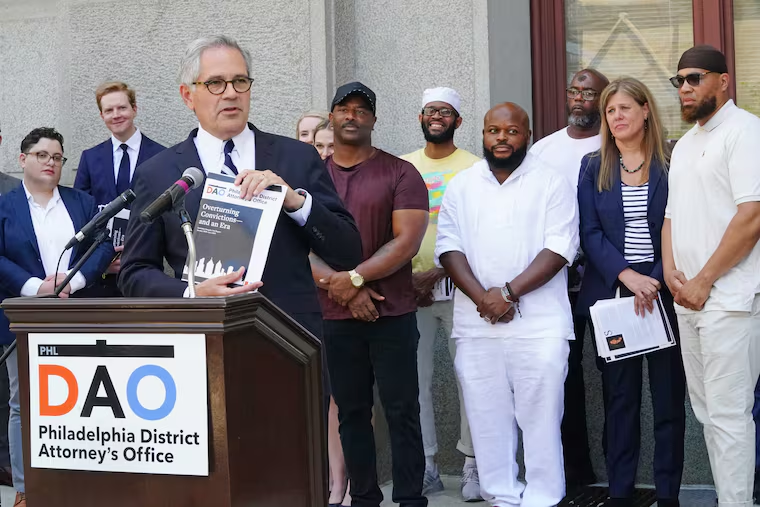The high cost of police misconduct | Editorial
Corrupt cops and misconduct undermine the good work of dedicated officers. It also creates more distrust among residents in high-crime neighborhoods that need quality police work the most.

Philadelphians may have sent a message in last year’s mayoral election that they weren’t interested in the “defund the police” movement by electing Cherelle L. Parker, who pledged to focus on “restoring our police department to its full complement.” But if the kind of reform advocated in that ill-phrased slogan isn’t a priority, then incidents of police misconduct are guaranteed to continue to defund the city.
The most recent cost to taxpayers was $60 million over 18 months, according to an Inquirer investigation. That is a large jump from the average yearly cost of around $9 million in the past decade. The money was paid out to victims of everything from false arrest and excessive force by officers to wrongful conviction.
Corruption and misconduct have long plagued the Philadelphia Police Department and cost taxpayers. But the sharp uptick was the result of a series of large settlements for wrongful convictions. Officials believe it’s only the beginning. Under District Attorney Larry Krasner, the Conviction Integrity Unit has led to more than 20 exonerations, and more payouts are on the way, with a potential total of $120 million, according to a city study.
» READ MORE: Police accountability is key to making Philly safer | Editorial
The only way taxpayers will be protected from these large outlays in the future is to ensure the justice system avoids the mistakes of the past.
Many of the pending cases are the result of the work of notorious homicide detective Philip Nordo, who was sentenced to 49 years in prison for sexually abusing and exploiting witnesses and informants. Inquirer reporters Chris Palmer and Samantha Melamed chronicled the many crimes of Nordo in their series, “Predator in Blue.”
Undoing these convictions, and compensating his victims, is the least the city can do. But Nordo did not work in a vacuum, and he was far from being that single, fabled bad apple. He worked inside a system that may not have enabled him but did turn a blind eye often enough that his conduct went undetected for decades.
More broadly, corrupt cops and misconduct undermine the good work of dedicated officers. It also creates more distrust among residents in high-crime neighborhoods that need quality police work the most.
While taxpayers may feel tapped out and outraged, more resources will likely be needed, not only in the form of better recruitment and increased training for police but also better pay for defense attorneys and prosecutors.
» READ MORE: Without systemic change, police killings will continue | Editorial
For too long, courts and lawyers the public depends on to ascertain fact from fiction and determine innocence and guilt have been massively underfunded. Per the Philadelphia Business Journal, the mean starting salary for lawyers at large private firms is now over $186,000. Starting prosecutors and public defenders make roughly a third of that. It is no wonder nearly every Pennsylvania county is short on public defenders, or that studies have found that those who do the job are dangerously overworked.
Despite these struggles, it is thanks to public defenders that Nordo was caught in the first place. Imagine how many wrongful convictions could be avoided if these attorneys had more resources and more time to spend on each individual case.
Beyond the pain and punishment inflicted on those improperly imprisoned, wrongful convictions also allow the real perpetrators to roam free. This level of routine impunity decreases trust in the system and makes it harder to provide the safety and justice Philadelphians deserve.
The city doesn’t just need more law enforcement, it needs better law enforcement. The cost of anything else is just too high.